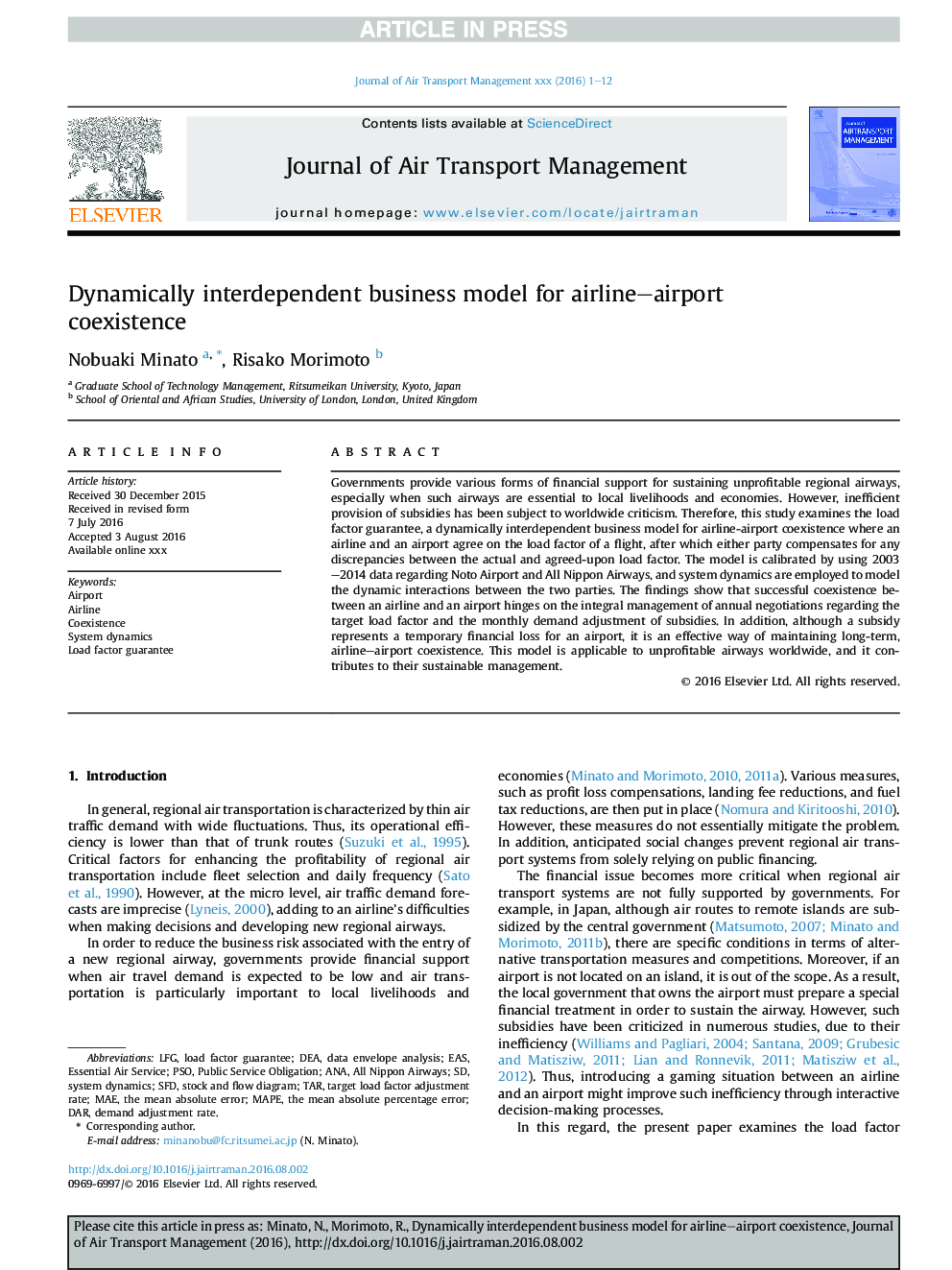| Article ID | Journal | Published Year | Pages | File Type |
|---|---|---|---|---|
| 5111505 | Journal of Air Transport Management | 2017 | 12 Pages |
Abstract
Governments provide various forms of financial support for sustaining unprofitable regional airways, especially when such airways are essential to local livelihoods and economies. However, inefficient provision of subsidies has been subject to worldwide criticism. Therefore, this study examines the load factor guarantee, a dynamically interdependent business model for airline-airport coexistence where an airline and an airport agree on the load factor of a flight, after which either party compensates for any discrepancies between the actual and agreed-upon load factor. The model is calibrated by using 2003-2014 data regarding Noto Airport and All Nippon Airways, and system dynamics are employed to model the dynamic interactions between the two parties. The findings show that successful coexistence between an airline and an airport hinges on the integral management of annual negotiations regarding the target load factor and the monthly demand adjustment of subsidies. In addition, although a subsidy represents a temporary financial loss for an airport, it is an effective way of maintaining long-term, airline-airport coexistence. This model is applicable to unprofitable airways worldwide, and it contributes to their sustainable management.
Related Topics
Social Sciences and Humanities
Business, Management and Accounting
Strategy and Management
Authors
Nobuaki Minato, Risako Morimoto,
